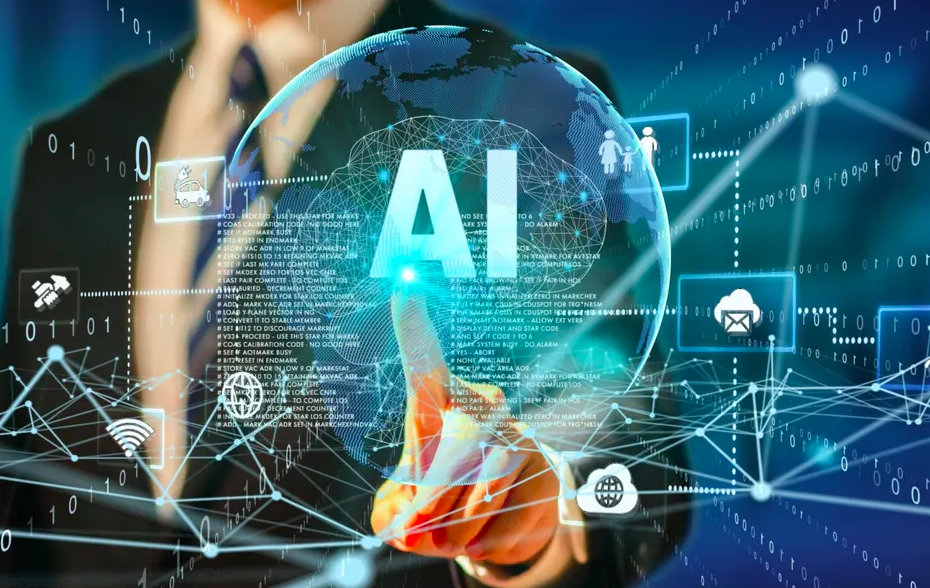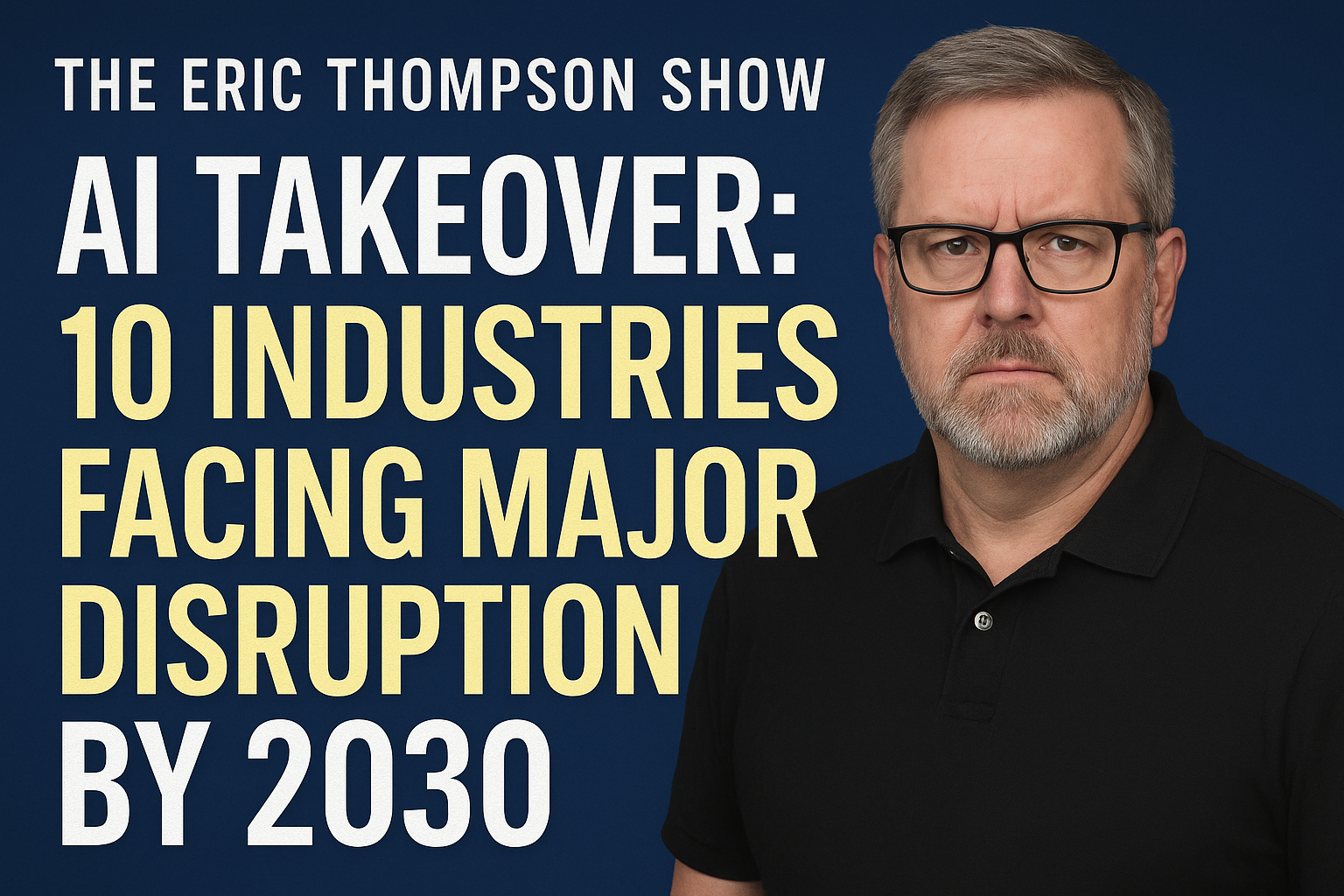In 2025, AI will significantly reshape the business landscape by automating tasks, personalizing customer experiences, and enhancing decision-making through predictive analytics. AI agents will simplify complex workflows, and AI-powered solutions will improve customer experiences by anticipating needs. Moreover, AI will play a crucial role in enhancing security systems and providing access to knowledge through enterprise search.
As 2025 unfolds, artificial intelligence (AI) is moving from buzzword to boardroom strategy, transforming industries across the U.S. economy. According to insights from industry leaders at Google Cloud, Microsoft, and Forbes, AI is no longer a futuristic concept but a force actively reshaping business operations—from automating processes to enhancing customer experiences. While tech giants praise these advances, the rapid shift also raises concerns about the cultural and ethical implications of who controls the data, the labor market impact, and whether American values are preserved in the process.
Microsoft’s March 2025 report highlights real-world business transformations driven by AI adoption, citing examples across finance, manufacturing, healthcare, and retail. “We’re seeing organizations redefine what’s possible,” said Judson Althoff, Microsoft’s EVP and Chief Commercial Officer. AI tools are reportedly increasing productivity, reducing downtime, and personalizing services on a scale never seen before. Healthcare companies are using AI to predict patient needs, while manufacturers are streamlining production lines using machine learning and automation.
Google Cloud’s latest analysis echoes these trends, reporting that AI is “reinventing how industries work” by enabling smarter decision-making, enhanced customer support, and more efficient supply chains. The company predicts that retail and manufacturing sectors in particular will see major transformations, with AI-powered forecasting tools allowing for better inventory management and demand prediction. For agriculture and energy, AI offers tools to optimize yield and cut waste, raising hopes for improved domestic production.
However, while big tech firms tout the benefits, not everyone is cheering. Many conservative business leaders and policymakers are calling for caution, warning that Silicon Valley’s unchecked dominance over AI infrastructure may shift too much power away from middle America. Small businesses, especially in traditional industries, are struggling to keep up with the rapid digitization, and concerns over surveillance, data privacy, and political bias in AI systems persist.
The Forbes article underscores how startups and entrepreneurs can harness AI to remain competitive, recommending targeted investments in automation, customer engagement, and fraud detection. Yet this same push could risk sidelining human workers, especially in jobs where automation replaces repetitive tasks. Some critics argue that globalist-minded executives may prioritize efficiency over employment, accelerating job displacement without offering viable transitions for American workers.
Conservative voices are also raising red flags about AI’s potential misuse in cultural and political spheres. While the tech sector promotes AI as a neutral tool, recent history shows that AI-powered systems can reflect the biases of their programmers—many of whom lean left. Without proper oversight, there’s concern that these platforms may suppress dissenting viewpoints or promote politicized content under the guise of “neutral” algorithms.
Additionally, the question of AI infrastructure sovereignty looms large. Most leading AI models and cloud services are controlled by a small number of multinational corporations. This centralization raises alarms about national security, data ownership, and dependency on politically driven tech companies. Many conservatives argue that AI development must be steered with clear pro-American values, ensuring that innovation doesn’t come at the cost of freedom, fairness, and constitutional rights.
Despite these concerns, AI’s economic potential is hard to ignore. Microsoft reported a significant productivity boost among enterprise users integrating tools like Copilot and Azure AI, with customer service teams resolving queries faster and supply chains becoming more agile. Businesses that fail to adapt risk being left behind as competitors leverage data to increase profitability and expand market share.
Google’s analysis suggests that businesses embracing AI responsibly can enhance both profitability and customer trust. Retailers are using AI to personalize online shopping, while financial institutions deploy AI models for fraud detection and portfolio management. Still, many small-town business owners remain skeptical, wary of handing over operational control to digital systems that could be manipulated or fail without warning.
For conservative business leaders, the path forward lies in selective, values-based adoption. AI tools should serve as assets—not replacements—for American workers. Investment should emphasize tools that strengthen productivity while preserving human oversight. Moreover, decentralizing control from coastal tech elites to regional hubs would empower broader sectors of the economy and safeguard against monopolistic practices.
Microsoft’s case studies show that even legacy companies are finding ways to evolve. A steel manufacturer in the Midwest, for example, implemented predictive AI to identify equipment failure before it occurred, minimizing costly downtime. This example demonstrates that AI, when deployed strategically, can reinvigorate traditional industries rather than dismantle them.
At the same time, businesses must stay vigilant. As AI becomes more integrated into hiring practices, financial transactions, and customer communications, transparency and accountability must remain priorities. Conservatives stress that AI must work for the people—not act as a tool of control for unelected tech executives or foreign interests.
AI may be revolutionizing how business is done in 2025, but its implementation must reflect American principles of innovation, independence, and integrity. Leaders who understand this balance will be best positioned to thrive in the new economy while defending the values that built it.





